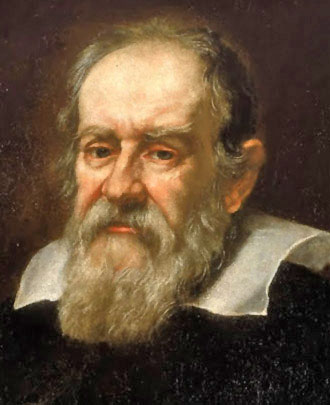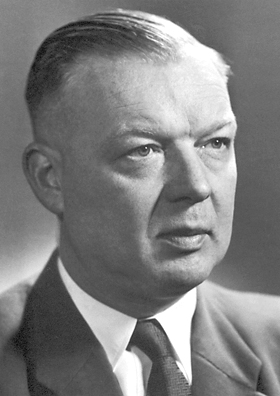By Arpan Banerjee
Recently I had the good fortune to see an excellent production of Bertolt Brecht’s play The Life of Galileo at the Birmingham Repertory Theatre. Brecht has a tenuous connection with the medical profession; he registered in 1917 to attend a medical course in Munich and found himself drafted into the army, serving in a military VD clinic for a short while before the end of the war. Brecht’s main interest, however, was drama (in 1918 he wrote his first play Baal) and it was in this field that he made his lasting contribution.

Galileo Galilei
Galileo was persecuted by the Church and the established authorities for his scientific research. His major crime was using his telescope to confirm the Copernican model of the Sun being at the centre of the solar system with the earth revolving around it. This challenged the cultural consensus and the leaders of the day were not prepared to listen to scientific evidence which challenged old dogmas. Galileo was interrogated in the Vatican, tortured, and forced to retract his theories.
The medical profession has also seen more than its fair share of persecution. I will illustrate with two examples in the relatively new speciality of radiology. The people concerned were not radiologists as such but were conducting pioneering research in imaging. Wilhelm Rötgen, the German physicist who first discovered x-rays in 1895, did himself meet relatively few obstacles regarding the dissemination of his thoughts and findings. But Werner Forssmann, a physician from the small town of Eberswalde in Germany, was not so lucky. In 1929, it is claimed, Forsmann performed the procedure of catheterisation of the heart upon himself and incurred the wrath of his boss as a result. He was sacked and had to switch from a career in cardiology to urology.
Forssmann was to have the last laugh a quarter century later when he shared the 1956 Nobel Prize for his contribution to cardiac catheterisation. This is now a commonplace procedure worldwide.

Werner Forssmann
The next case concerns the plight of Moses Swick, an American urology intern who went to Germany in 1928 to work with Professor Lichtenberg in Berlin. Swick performed scientific studies of a new intravenous contrast agent which would enable visualisation of the renal tract. He and Professor Lichtenberg fell out about who should be given the accolade for the discovery; Lichtenberg stole the limelight and was invited to talk about intravenous urography at the American Urological Association Scientific meeting. For 35 years Swick worked as an urologist in New York until in 1966 it was realised that he had been the victim of injustice and his role in the discovery was belatedly recognised.
These stories are examples where justice prevailed in the end. There are several others which did not and still do not realise fair outcomes.
Arpan K Banerjee qualified in medicine from St Thomas’s Hospital Medical School in London, UK and trained in Radiology at Westminster Hospital and Guys and St Thomas’s Hospital. In 2012 he was appointed Chairman of the British Society for the History of Radiology of which he is a founder member and council member. In 2011 he was appointed to the scientific programme committee of the Royal College Of Radiologists, London. He is the author/co-author of six books including the recent The History of Radiology. Read his previous blog posts.
Subscribe to the OUPblog via email or RSS.
Subscribe to only psychology articles on the OUPblog via email or RSS.
Image credits: (1) Galileo, public domain via Wikimedia Commons. (2) Wilhelm Röntgen, by NFejza, CC-BY-SA-3.0 via Wikimedia Commons. (3) Werner Forssmann nobel, public domain via Wikimedia Commons.
The post Persecution in medicine appeared first on OUPblog.

By Meghann Wilhoite
2012 has been a poignant year for avant-garde music. German composer Hans Werner Henze passed away in October at age 86; a little over a week later American composer Elliott Carter passed away at the age of 103. The late John Cage was, as Musical America put it, “feted beyond his own wildest dreams” this year in celebration of his birth centenary.
All three of these composers wrote music that challenged listeners to reconsider the boundaries of what qualifies as music.
John Cage once stated, “I certainly had no feeling for harmony, and Schoenberg thought that that would make it impossible for me to write music. He said, ‘You’ll come to a wall you won’t be able to get through.’ So I said, ‘I’ll beat my head against that wall.’”
Elliott Carter (touchingly eulogized by Paul Griffiths last month on the OUPblog) likewise acknowledged that most listeners did not understand his music: “One thing I can’t understand is why people have such trouble with modern music. It seems to me to be perfectly intelligible. When I hear one of my pieces again, or listen to the record, I don’t see why people could find this perplexing in any way. Yet audiences can’t make head or tail of it… I finally said the hell with that whole point of view and decided to write what I really always hoped to write, and what I thought was most important for me. I’ve taken that point of view ever since.”
Hans Werner Henze, according to Norman Lebrecht, knew that his music would not be fully understood or appreciated during his lifetime.
What is it about these composers’ music that “perplexes” people so, and yet holds their attention? What makes Howard Stern, listening to a young composer’s piece exclaim “We couldn’t even figure out if it was music” and then spend ten minutes of his show excoriating it?
I personally have long been fascinated by this type of music — highly structured, arcane music that challenges my ears, requiring deep listening, still managing somehow to stimulate my emotions. Really this music is why I studied music theory throughout my graduate years; I wanted to be able to talk about what I was hearing in a meaningful way.
My journey began with Morton Feldman’s music, but after I moved to New York City I quickly became involved with the thriving and vibrant community of avant-garde musicians that live here.
Last July I interviewed two composers about the progression of their compositional styles over their heretofore relatively short careers. One of the interviewees, Matthew Hough (who wrote the piece featured on Stern’s show), seemed to subconsciously channel Carter when he said “At a certain point [in my career] I realized I was thinking too much about how I was being perceived and not thinking hard enough about why I’m doing what I’m doing and what composition means for me.”
And here we get to the crux of the matter: Is it music when someone approaches composition in this way? Is it music when what we hear defies classification? Indeed, I use the term avant-garde here, but one of the challenges of talking about this music is terminology: What do we talk about when we can’t talk about chords, melodies, themes, etc.?
Ultimately, my answer to the first two questions is ‘yes’; my answer to the last question is ‘get creative’. Above all, open-mindedness and a willingness to listen actively and creatively are absolutely necessary if we’re going to appreciate avant-garde music on its own terms.
“The first question I ask myself when something doesn’t seem to be beautiful is why do I think it’s not beautiful. And very shortly you discover that there is no reason.” –John Cage.
Meghann Wilhoite is an Assistant Editor at Grove Music/Oxford Music Online, music blogger, and organist. Follow her on Twitter at @megwilhoite. Read her previous blog posts on Sibelius, the pipe organ, John Zorn, West Side Story, and other subjects.
Oxford Music Online is the gateway offering users the ability to access and cross-search multiple music reference resources in one location. With Grove Music Online as its cornerstone, Oxford Music Online also contains The Oxford Companion to Music, The Oxford Dictionary of Music, and The Encyclopedia of Popular Music.
Subscribe to the OUPblog via email or RSS.
Subscribe to only music articles the OUPblog via email or RSS.
The post Is it music? A listener’s journey appeared first on OUPblog.





